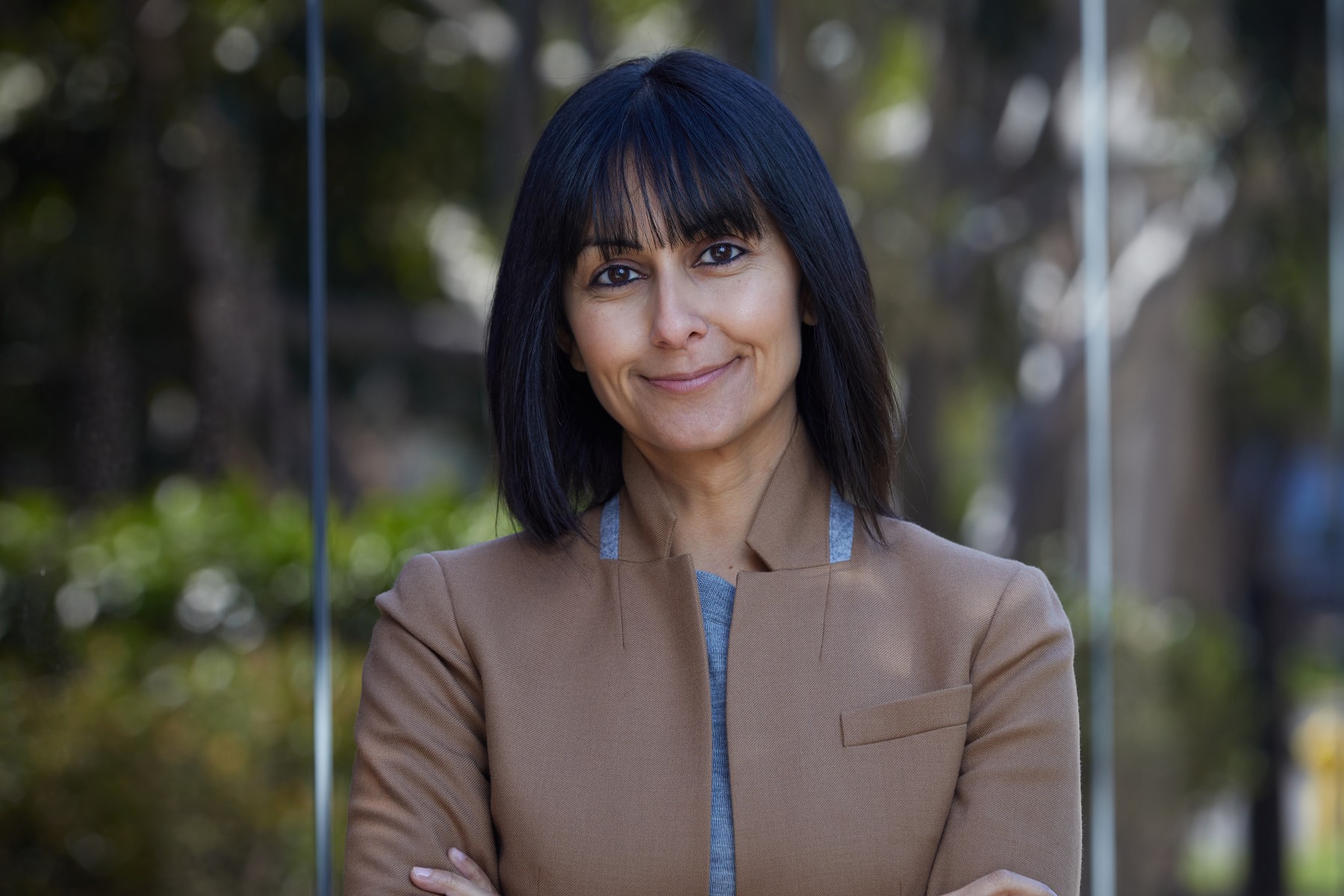Cedars-Sinai Launches Microbiome Research Institute
Led by Suzanne Devkota, PhD, the Goal Is to Expand the Study of the Microorganisms That Live in and on the Human Body
Cedars-Sinai has established a new Human Microbiome Research Institute that will support investigators studying how the microbiome, the diverse collection of bacteria, fungi and viruses that live in and on the human body, plays a role in health.
Suzanne Devkota, PhD, associate professor of Medicine and Biomedical Sciences at Cedars-Sinai, will serve as the inaugural director. Her objective is to amplify the use of technologies available at Cedars-Sinai to study the microbiome across specialties and disciplines.
“The Cedars-Sinai Human Microbiome Research Institute aims to reduce the barriers to entry for investigators who wish to explore the microbiome in their translational studies,” Devkota said. “Most research in this area has largely consisted of studies reporting associations between microbiome changes and development of disease in patients. The new institute will enable deeper research into how microbiota may cause or prevent illness, with the goal of aiding the development of new treatments.”
 Although many people acquire a healthy balance of microbiota early in their lives, factors such as an unhealthy diet and prolonged use of some medications such as antibiotics can disrupt the balance and make the body more prone to illness. Research has linked high or low levels of certain bacteria with development of inflammatory bowel diseases, diabetes, cancer, obesity and other diseases.
Although many people acquire a healthy balance of microbiota early in their lives, factors such as an unhealthy diet and prolonged use of some medications such as antibiotics can disrupt the balance and make the body more prone to illness. Research has linked high or low levels of certain bacteria with development of inflammatory bowel diseases, diabetes, cancer, obesity and other diseases.
The institute will assist investigators with all aspects of conducting microbiome research, such as designing studies, cultivating microbial samples from humans and laboratory mice, studying the DNA and RNA of microbiome samples, and analyzing data. It will also provide funding to support investigators as they collect preliminary data that may lead to larger funding opportunities and new research initiatives.
Under the leadership of Devkota, the institute will prioritize research into how the microbiome is involved in gastrointestinal diseases, cancer, metabolism, autoimmunity and early childhood development.
“Dr. Devkota was a natural choice for this position as she is a leading investigator in the field of microbiome research and can help guide those just starting out,” said Paul Noble, MD, the Vera and Paul Guerin Family Distinguished Chair in Pulmonary Medicine and chair of the Department of Medicine at Cedars-Sinai.
Devkota is currently the principal investigator of three National Institutes of Health-funded studies that are analyzing the microbiota. She oversees a laboratory at Cedars-Sinai that is examining how diet affects the human microbiome and how changes in the microbiome might be early indicators of disease.
 The laboratory has made multiple discoveries, including that bacteria in the gut can communicate with fat tissue and cause fat cells to grow in Crohn’s disease. She recently received an NIH Director’s Pioneer Award to investigate whether this process contributes to obesity. Investigators in the Devkota Lab have also reported that microbiota in the gut can produce nutrients for the body to compensate for a lack of these in the diet.
The laboratory has made multiple discoveries, including that bacteria in the gut can communicate with fat tissue and cause fat cells to grow in Crohn’s disease. She recently received an NIH Director’s Pioneer Award to investigate whether this process contributes to obesity. Investigators in the Devkota Lab have also reported that microbiota in the gut can produce nutrients for the body to compensate for a lack of these in the diet.
The institute will provide educational opportunities to the research community by hosting workshops and a twice-monthly microbiome-focused seminar. It also plans to launch a microbiology internship program for Los Angeles Unified School District science teachers.
“The combination of high-quality laboratory resources, Dr. Devkota’s outstanding leadership, and the skilled investigators and clinicians that we have here at Cedars-Sinai will help propel microbiome research forward,” said Ophir Klein, MD, PhD, executive director of Cedars-Sinai Guerin Children’s and advisor to the Cedars-Sinai Human Microbiome Research Institute.
Read more on the Cedars-Sinai Blog: Unraveling How Gut Bacteria Affect Our Health
Follow Cedars-Sinai Academic Medicine on Twitter for more on the latest basic science and clinical research from Cedars-Sinai.




